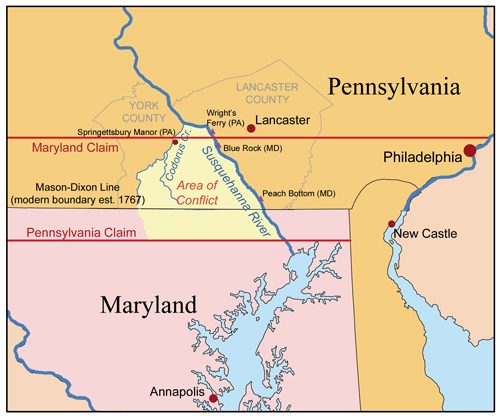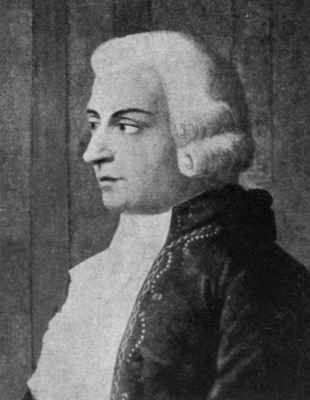|
Pasquale Errichelli
Pasquale Errichelli (also ''Ericchelli'' or ''Enrichelli''; 1730–1785) was an Italian composer and organist based in the city of Naples. Trained at the Conservatorio della Pietà dei Turchini, his compositional output consists of 7 operas, 2 cantatas, 1 symphony, 3 sonatas, several concert arias, and the oratorio ''Gerosolina protetta''. He was for many years the organist at the Cattedrale di Napoli. Operas *''La serva astuta'' (opera buffa, 1753, Naples; in collaboration with Gioacchino Cocchi) *''Il finto turco'' (opera buffa, libretto by Antonio Palomba, 1753, Naples; in collaboration with Gioacchino Cocchi) *''Issipile'' (opera seria, libretto by Pietro Metastasio, 1754, Naples) *''La finta 'mbreana'' (commedia, libretto by G. Bisceglia, 1756, Naples; in collaboration with Nicola Bonifacio Logroscino) *''Solimano'' (opera seria, libretto by Giovanni Ambrogio Migliavacca, 1757, Rome) *''Siroe'' (opera seria, libretto by Pietro Metastasio, 1758, Naples) *''Eumene'' (3 Acts ... [...More Info...] [...Related Items...] OR: [Wikipedia] [Google] [Baidu] |
Composer
A composer is a person who writes music. The term is especially used to indicate composers of Western classical music, or those who are composers by occupation. Many composers are, or were, also skilled performers of music. Etymology and definition The term is descended from Latin, ''compōnō''; literally "one who puts together". The earliest use of the term in a musical context given by the ''Oxford English Dictionary'' is from Thomas Morley's 1597 ''A Plain and Easy Introduction to Practical Music'', where he says "Some wil be good descanters ..and yet wil be but bad composers". "Composer" is a loose term that generally refers to any person who writes music. More specifically, it is often used to denote people who are composers by occupation, or those who work in the tradition of Western classical music. Writers of exclusively or primarily songs may be called composers, but since the 20th century the terms ' songwriter' or ' singer-songwriter' are more often used, p ... [...More Info...] [...Related Items...] OR: [Wikipedia] [Google] [Baidu] |
Giovanni Ambrogio Migliavacca
Giovanni Ambrogio Migliavacca ( 1718 – c. 1795) was an Italian poet and librettist. A student and protégé of Metastasio, he was primarily active in the court theaters of Dresden and Vienna. His most successful work was the libretto for the opera '' Solimano'', first set by Johann Adolph Hasse in 1753 and subsequently set by eighteen other composers in the following decades. Life and career Migliavacca was born in Milan around 1718, but the exact date of his birth as well as his parentage and early life are unknown. Much of the information about his life has come from Metastasio's letters. At the age 18, in 1736, Migliavacca edited a collection of poetic tributes dedicated to the Duke of Noailles. Soon after, he became a member of the Accademia dei Filodossi and was active in the Milanese intellectual milieu of the Enlightenment. He initially opted for a career as a diplomat, working as the imperial secretary of the Italian legation to the court of Charles VII where he became ... [...More Info...] [...Related Items...] OR: [Wikipedia] [Google] [Baidu] |
18th-century Italian Composers
The 18th century lasted from 1 January 1701 (represented by the Roman numerals MDCCI) to 31 December 1800 (MDCCC). During the 18th century, elements of Age of Enlightenment, Enlightenment thinking culminated in the Atlantic Revolutions. Revolutions began to challenge the legitimacy of monarchical and aristocratic power structures. The Industrial Revolution began mid-century, leading to radical changes in Society, human society and the Natural environment, environment. The European colonization of the Americas and other parts of the world intensified and associated mass migrations of people grew in size as part of the Age of Sail. During the century, History of slavery, slave trading expanded across the shores of the Atlantic Ocean, while declining in Russian Empire, Russia and Qing dynasty, China. Western world, Western historians have occasionally defined the 18th century otherwise for the purposes of their work. For example, the "short" 18th century may be defined as 1715� ... [...More Info...] [...Related Items...] OR: [Wikipedia] [Google] [Baidu] |
Musicians From Naples
A musician is someone who composes, conducts, or performs music. According to the United States Employment Service, "musician" is a general term used to designate a person who follows music as a profession. Musicians include songwriters, who write both music and lyrics for songs; conductors, who direct a musical performance; and performers, who perform for an audience. A music performer is generally either a singer (also known as a vocalist), who provides vocals, or an instrumentalist, who plays a musical instrument. Musicians may perform on their own or as part of a group, band or orchestra. Musicians can specialize in a musical genre, though many play a variety of different styles and blend or cross said genres, a musician's musical output depending on a variety of technical and other background influences including their culture, skillset, life experience, education, and creative preferences. A musician who records and releases music is often referred to as a recordin ... [...More Info...] [...Related Items...] OR: [Wikipedia] [Google] [Baidu] |
Italian Male Opera Composers
Italian(s) may refer to: * Anything of, from, or related to the people of Italy over the centuries ** Italians, a Romance ethnic group related to or simply a citizen of the Italian Republic or Italian Kingdom ** Italian language, a Romance language *** Regional Italian, regional variants of the Italian language ** Languages of Italy, languages and dialects spoken in Italy ** Italian culture, cultural features of Italy ** Italian cuisine, traditional foods ** Folklore of Italy, the folklore and urban legends of Italy ** Mythology of Italy, traditional religion and beliefs Other uses * Italian dressing, a vinaigrette-type salad dressing or marination * Italian or Italian-A, alternative names for the Ping-Pong virus, an extinct computer virus * ''Italien'' (magazine), pro-Fascist magazine in Germany between 1927 and 1944 See also * * * Italia (other) * Italic (other) * Italo (other) * The Italian (other) The Italian may refer to: * ''The Italia ... [...More Info...] [...Related Items...] OR: [Wikipedia] [Google] [Baidu] |
1785 Deaths
Events January–March * January 1 ** The Burmese Konbaung Dynasty annexes the Mrauk U Kingdom of Arakan. ** The first issue of the ''Daily Universal Register'', later known as ''The Times'', is published in London. * January 7 – Frenchman Jean-Pierre Blanchard and American John Jeffries travel from Dover, England to Calais, France in a hydrogen gas balloon (aeronautics), balloon, becoming the first to cross the English Channel by air. * January 11 – Richard Henry Lee is elected as President of the U.S. Congress of the Confederation.''Harper's Encyclopaedia of United States History from 458 A. D. to 1909'', ed. by Benson John Lossing and, Woodrow Wilson (Harper & Brothers, 1910) p167 * January 20 – Battle of Rạch Gầm-Xoài Mút: Invading Thai people, Siamese forces, attempting to exploit the political chaos in Vietnam, are ambushed and annihilated at the Mekong River by the Tây Sơn dynasty, Tây Sơn. * January 27 – The University of Geor ... [...More Info...] [...Related Items...] OR: [Wikipedia] [Google] [Baidu] |
1730 Births
Events January–March * January 30 (January 19 O.S.) – At dawn, Emperor Peter II of Russia dies of smallpox, aged 14 in Moscow, on the eve of his projected marriage. * February 26 (February 15 O.S.) – Anna of Russia (Anna Ioannovna) becomes reigning Empress of Russia following the death of her cousin Emperor Peter II. * February 28 – Vitus Bering returns to the Russian capital of Saint Petersburg after completing the First Kamchatka expedition. * March 5 – The 1730 papal conclave to elect a new Pope for the Roman Catholic church begins with 30 Cardinals, 12 days after the death of Pope Benedict XIII. By the time his successor is elected on July 12, there are 56 Cardinals. * March 9 – General Nader Khan of Persia opens the first campaign of the Ottoman–Persian War (1730–1735), guiding the Persian Army from Shiraz and starting the Western Persia Campaign against the Ottoman Empire. * March 12 – John Glas is deposed from ... [...More Info...] [...Related Items...] OR: [Wikipedia] [Google] [Baidu] |
Giacomo Insanguine
Giacomo Antonio Francesco Paolo Michele Insanguine (also called ''Giacomo Monopoli'' after his birthplace Monopoli; 22 March 1728 – 1 February 1795) was an Italian composer, organist, and music educator. He was the last director (primo maestro) of the conservatoire of Sant'Onofrio in Naples Naples ( ; ; ) is the Regions of Italy, regional capital of Campania and the third-largest city of Italy, after Rome and Milan, with a population of 908,082 within the city's administrative limits as of 2025, while its Metropolitan City of N ..., which merged in 1795, two years after Insanguine's death in Naples, with the conservatoire of Santa Maria di Loreto. The most important and up-to-date critical study on him was recently published in an Anthology of unpublished eighteenth-century music in Puglia.''Musiche Inedite del Settecento Pugliese'', Edizione critica a cura di Domenico Morgante, Padova, Armelin Musica, 2021 ISMN 979-0-2158-2588-8. References 1728 births 1793 d ... [...More Info...] [...Related Items...] OR: [Wikipedia] [Google] [Baidu] |
Gian Francesco De Majo
Gian Francesco de Majo (24 March 1732 – 17 November 1770) was an Italian composer. He is best known for his more than 20 operas. He also composed a considerable amount of sacred works, including oratorios, cantatas, and masses. Life and career Born in Naples, Majo was the son of composer Giuseppe de Majo. He began his musical education with his father and then studied with his uncle Gennaro Manna and his great uncle Francesco Feo. At the age of 13 he became the harpsichordist at the royal chapel in Naples and at 15 began helping his father with his duties there as maestro di cappella. In 1758 he was made second organist at the royal chapel. On 7 February 1759 his first opera, ''Ricimero, re dei goti'', premiered in Parma. This was soon followed by a series of successful operas mounted in Naples. In 1761 and 1763 Majo traveled to Northern Italy, where he presented several of his compositions and studied for a short period with Giovanni Battista Martini. After a short time ... [...More Info...] [...Related Items...] OR: [Wikipedia] [Google] [Baidu] |






